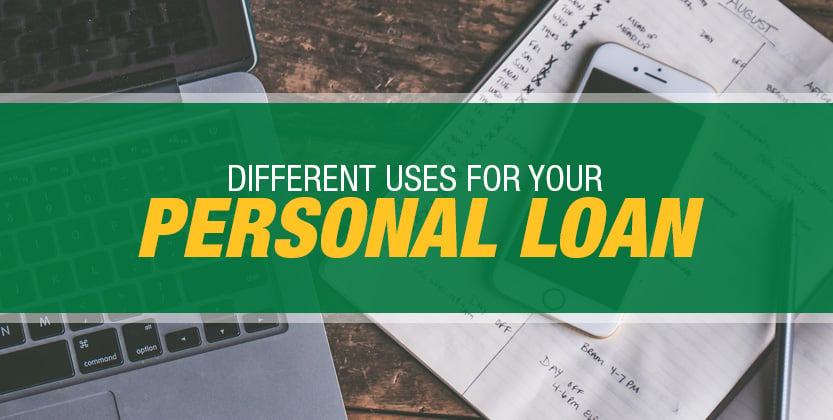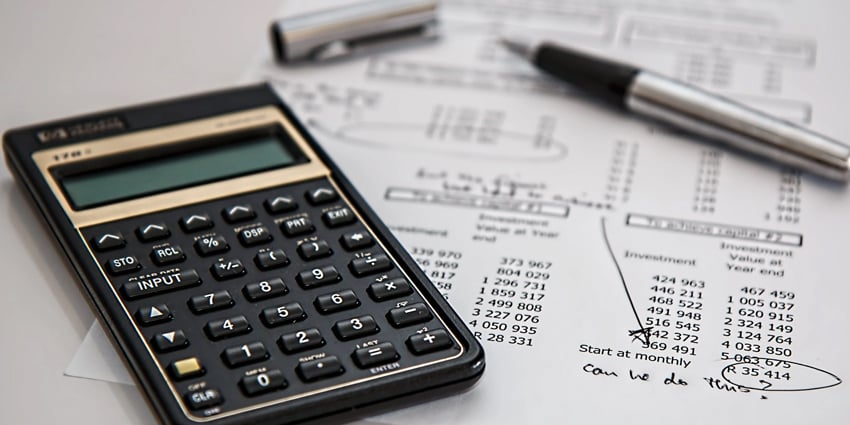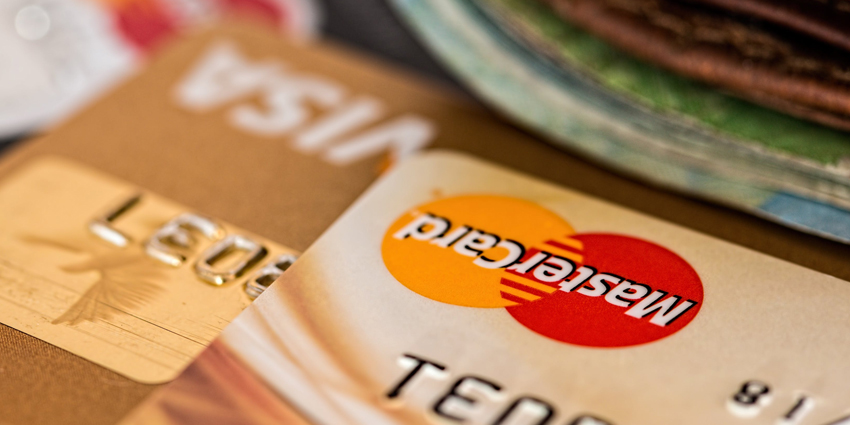
7 Uses for a Personal Loan
A personal loan defines a fixed amount of funds you borrow from a lender. This loan comes with a fixed rate, and you can repay it over a fixed period. You can get a personal loan that is either unsecured or secured. Here are some differences between the two.
Types of Personal Loan
Unsecured Personal Loans
An unsecured personal loan means you do not need collateral as eligibility criteria. However, due to this very reason, lenders heavily weigh other eligibility factors such as your income credit score, outstanding debts.
Having a bad credit score can make it outright expensive or difficult for you to get a loan.
Secured Personal Loans
Secured personal loans are the opposite as they require collateral as a qualifier. If you default on a payment, lenders have the authority to seize your collateral. Collateral guarantees the lenders that their investment will be secure, and they will receive a return, even if you fail to clear the balance.
How Exactly Personal Loan Works?
You can use your personal loans to finance big-spending such as a vacation, home renovation, wedding, paying-off high-interest debts or credit card balance, or even consolidating your student loan.
With a personal loan, a lump sum amount is deposited directly into your bank account. Typically, you have to repay the loan in monthly installments with a fixed interest rate over a fixed time. The payback term can be anything between a year and up to ten years and varies for each lender.
For example, one lender may offer a payback duration of five years for $10,000, while other lenders may offer the same amount with a payback term of 10 years.
If you wish to borrow but are not sure how much you need, you can opt for a personal line of credit (LOC), also known as an unsecured revolving LOC. This LOC has a credit limit predetermined by the lender. Think of it as a credit card with a loan amount on it that you can use as and when you need it.
The interest rate on the revolving LOC is variably and subject to change with an interest rate fluctuation in the market. The best part is, you only pay for what you have withdrawn from the loan and interest.
Pay Attention to Your Credit Score
Most consumers can apply for a personal loan as it caters to a wide credit spectrum. However, some factors can improve your chances of securing more favorable rates and terms. A good credit score is one of them.
Your credit score depicts your overall financial and credit history. The higher it is, the better are your chances to get approval with lower interest rates. However, some lenders specialize in offering personal loans to borrowers with bad credit scores as well.
This means all hope isn’t lost yet. If you do not have time or means to improve your credit score, you can apply with the lenders who do cater to applicants with a poor credit history.
That said – your credit score is important, and a lender will go through your credit report. This is to ensure there are no negative aspects from the past that may affect your eligibility. Some of the red flags that you must avoid on your credit report are:
- Delinquent payments
- Bankruptcy
- Collection accounts
- Foreclosure etc.
If your credit score is not ideal for securing a personal loan, start working on it as your top priority before applying. Go through your credit history report to identify the areas you need to focus on. Try to pay down your pending or existing debts to improve your debt-to-income ratio.
This is not an overnight process and may take time. Still, being a little bit proactive about it can help you secure a personal loan at favorable rates.
Why People Opt for a Personal Loan?
There are, as such, no restrictions by a lender, and you can use your personal loan for whatever purpose. However, it does not mean it is always the wisest thing to do. That said – a personal loan can be handy for improving your financial situation or providing necessary funds for your needs.
You can use a personal finance loan for debt consolidation, home renovation, paying off student loans, etc.
You can always use personal loans for financing leisure activities such as vacations and buying expensive consumer products. But, it is best to save until you can pay for them in cash. On the other hand, you can pay for the leisure expenses via credit card, earn reward points, and pay off the amount.
7 Ways to Use Your Personal Loan
Here are seven ways you can use your personal loan for.
1. Finance a Big One-Off Purchase
If you have to make a one-off payment for a purchase, such as buying a new car or an upcoming home renovation, a personal loan is an ideal financing option. You can get an unsecured personal loan without any risk of losing your property in case of non-payment.
2. Make Outdated Tax Payments
Whether you are a home person or a business owner, times of financial turmoil can affect your ability to pay your taxes on time. A personal loan can be a true savior in such circumstances and help you clear all your outdated/pending tax payments.
This will also improve your personal or business credit score to help secure future loans on more flexible rates and terms.
3. Refinancing Your Current Debts
In case you have high-interest debt or a credit card, you can save a substantial amount by paying it off by withdrawing a personal loan with a lower interest rate. Even if you do not save much, you will still be able to make structured installments when repaying your personal loan.
4. Start or Expansion of a Business
If you are a new business or a business with a low credit score, it is hard to secure a traditional business loan. In such a scenario, you can secure a personal loan and use it to start or expand your business. The lender will not ask you for what type of business purposes you need the loan.
You can use your personal loan to improve your existing facilities, buy real estate for expansion, or even acquire another business or entity.
5. Take Care of Future Expenses
In case you have an upcoming time-sensitive event, a personal loan is a cost-effective solution to fund it. You can use the fund for future home improvements or an upcoming family holiday.
Moreover, you cannot put off certain emergency situations such as a failing furnace or a leaky roof. In such scenarios, you can withdraw a personal loan to address emergency expenses.

6. Finance a Major Event
You plan for certain major events in life, such as wedding, starting a family, or a cross country move. Having access to a personal loan amount offers you the convenience to take all of the above and more major steps in your life without any financial worries.
On the other hand, some events befall upon you all of a sudden such as a funeral, a major accident, or a divorce. All these scenarios come with hefty expenses, and let us be honest; we barely save for such unforeseen major events. A personal loan can offer you the funds you need at the right time.
7. Adoption of a Child
While it is not recommended, you can get a personal loan for adoption. It comes handy to cover immediate and large expenses for the adoption process. This type of personal loan is also known as an adoption loan.
However, the adoption loan program will also consider your assets, credit score, savings, liabilities, and other factors to determine whether you qualify.
Learn to Calculate Your Personal Loan
No matter which of the above-mentioned uses or other expenses you wish to cover with personal financing, you must learn to calculate your loan. You must also know how much it will cost you once you have paid it back in full.
Whether you are a math-whizz or slept through calculus –you must have a grasp of the basic idea about your loan repayment calculation. Here is a simple three-step process to nail this.
Step # 1: Knowing Your Personal Loan
Before you start planning how you will spend the loan, you must first learn about the type of loan you are applying for, i.e., secured or unsecured loan. You must also ask your lender about the interest rates and the repayment term and penalties in case of late or missed payments.
Step # 2: Understanding Your Loan’s Monthly Payment Formula
Your next step is to learn about input numbers into the personal loan formula based on your loan type. This will determine your monthly EMI, which is usually fixed throughout the entire tenure of the personal loan.
The formula of your monthly installment is:
EMI = interest paid on your personal loan + principal amount.
Mathematically, you can calculate your EMI by simply logging in numbers in the following equation.
P*R*(1+R) ^N divided by [(1+R) ^N-1]
Where,
P represents your principal loan amount
R is your interest rate
N=Number of installments.
Step #3: Using Online Calculators
In case if the above two steps leave you in cold sweats, you can always hop on Google and search for an online calculator to figure out what your personal loan is going to cost you.
All you need are the correct figures of your principal amount, interest rate, and the number of repayment months or years.
Ready to Get a Personal Loan? Compare Pros and Cons
So, if you have made it so far into this article, you have probably made up your mind to get a personal loan. However, like anything in life, this personal financing option has its own benefits and shortcomings.
Pros
You already know the main benefit of a personal loan that is not requiring collateral in most cases. However, it has numerous other advantages, such as:
- Personal loans are versatile as you can use them for many purposes.
- You can choose from a variety of lenders online, via banks and credit unions.
- You do not need an excellent credit score.
- Fixed monthly payments every month.
- You can borrow any amount, typically up to $100,000.
- The loan approval is a quick process.
- You can choose from a variety of repayment terms.
Cons
No matter how convenient they are, personal loans are not for everyone. Thus, you must consider the following drawbacks before applying for one.
- There is a chance you may get caught in a continuous debt cycle. For example, if you use a personal loan to pay-off a big credit card debt and start using the credit card again, you will dig yourself a big hole with double debts.
- Some of the personal loans may come at a higher interest rate compared to other financing options. Plus, you will have to put your home or assets up for collateral if it is a secured loan.
- You may have to pay an origination fee
- In case you wish to pay off your loan earlier, you might get penalized by paying a charge.
- Beware of shady lenders. There are many scammers rampant in the personal loan arena as they will claim you to pay a small fee as an origination fee or collateral, but you will never hear back from them again. So, always check with the Better Business Bureau (BBB) before applying.
What Differentiates Personal Loan from Other Financing Options?
As we said earlier, a personal loan is the best alternate for borrowers compared to other financing options.
Personal Loan vs. HELOC
You can use a personal loan to remodel your house, fund your child’s education, consolidate debts, or pay for medical bills, etc. You can have fast access to funds without a need to put any of your belongings, property, and assets as collateral.
On the other hand, HELOC allows you to borrow additional loan with a home equity loan or line of credit. But, you will have to put your home up as collateral, exposing yourself to a massive risk of foreclosure or losing your home if you default on your loan.

Personal Loan vs. Credit Card
If you are considering consolidating your existing debts, a personal loan is a viable solution to do so. Taking out a new credit card will only put all your debts into one payment, but you will end up paying more due to a higher interest rate.
On the other hand, a personal loan will not only help you get rid of the existing debt but also replace a high fluctuating interest rate with a fixed lower interest rate.
Seriously, What Does it Take to Get in Good Graces of a Lender?
So, you have gone through the pros and cons of a personal loan to figure out if it is a good option. However, before you move forward, you must determine your chances of success.
Why?
It is the lenders who will have the final say whether you qualify for a loan or not. Thus, you must always stay in their good books. Here is how you can do so.
Non-Credit Factors
Lenders typically use the following non-credit factors to determine your eligibility and suitability.
- Age – you must be over 19 or even 21 in some states.
- Location – Not all lenders offer nationwide personal loans. Especially the banks and credit unions will only offer loans if they have a branch in your town, city, or state.
- Employment and Income – You must prove that you earn a regular and stable income from an employer, business, or government benefits. In the case of self-employment, you will need to show at least 12 months of income. Individual borrowers need to show an income of $20,000 per annum, and business borrowers must meet the threshold of a minimum of $50,000 of revenue per annum.
- Citizenship Status – You should be a US citizen or a permanent resident.
- Education – Not all lenders have education as a pre-requisite for a personal loan. However, they may ask for some proof for education-related loan applications.
- Assets and Collateral – Lenders may consider and factor in your non-liquid and liquid assets to determine your eligibility, especially when you are applying for a secured personal loan.
Conclusion
A personal loan sounds like a good financing option. That said – it does not mean you should treat it as extra money. The interest adds, and monthly installments will be stressful at times, depending on your circumstances.
Thus, you must weigh all your options before applying for a personal loan. For a temporary financial hiccup, considering tapping into your savings or exploring credit cards with promotional APR offers may be a better idea than applying for a long-term personal loan.
If you have already made up your mind to get a personal loan, do your research and shop around for the best rates available in the market. Make sure to go through all the terms and conditions before putting your signature on the dotted line.

